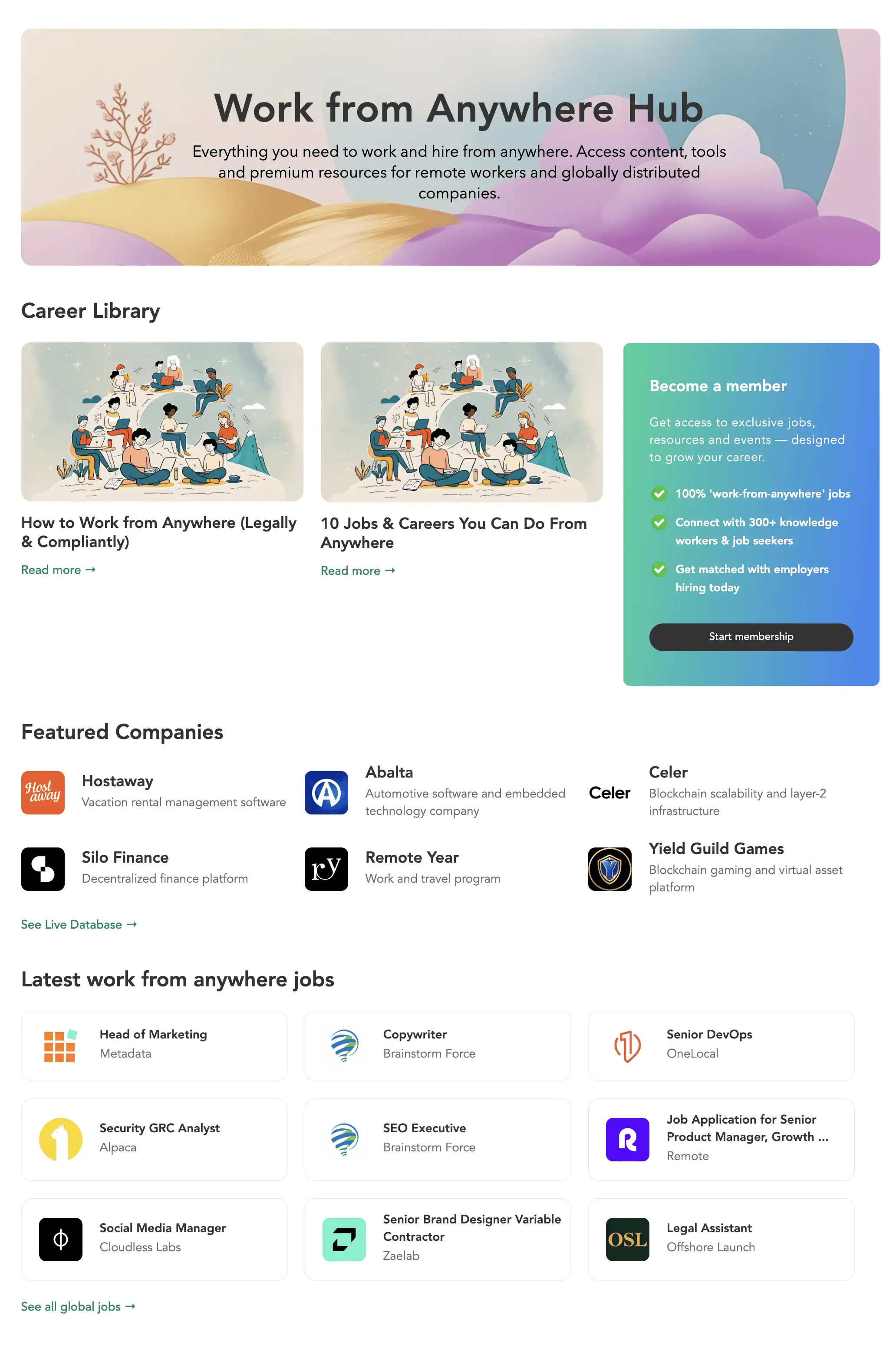
Talent is everywhere, opportunity is not. We've heard it all before.
Whilst there's tons of places to find jobs and connect with employers...knowledge work is stuck.
You’ve joined the marketplaces, hired recruiters, applied for months and asked for referrals. Yet, here you are.
Competing with thousands, AI interviewers, ghosting, digital employees, US-only jobs, fake jobs and more...the modern job search and career management is broken, tiring, confusing and soul-sucking.
We're here to make it just a little bit easier!
We Are Distributed helps talent and employers make better career & hiring decisions with tools, insights, community, media and coaching at every inflection point of your career throughout the employment lifecycle.
No matter your background or location.
So, what are you waiting for? Try our tools, listen to what others have to say about us and when you're ready - join us on the other side where the real work begins!
.svg)
.png)

.png)
.png)
.png)
.png)
.png)
.png)


.png)


.png)

Thanks for exploring everything we have to offer!
You've seen our tools, insights, community and media which are designed to help you get more interviews, make better career decisions and build confidence.
Finally, we have the job search accelerator coaching program. This program is designed to get you into long-term, remote work as soon as possible.
It's extremely limited in places, and only suitable if you've tried absolutely everything else and are struggling to make inroads with your job search.
Disclaimer: This program is NOT for you if your livelihood is at risk. We highly recommend you seek less competitive roles, focus on in-person local opportunities or switch industries altogether, as your chances of getting a job is higher via those routes.
We've found that getting into work is much, much easier when you're in a group with people in the same position as you - led by a facilitator to keep you accountable.
That's where we come in, because I believe looking for a job on your own; in this climate, is the biggest disadvantage you can have.
Here's what you get:
1) Live & async sessions tackling key challenges around your job search, w/group reviews, recruiter introductions & pair-interview practice
2) Apply for jobs together - each week we'll help you apply for jobs of interest, craft follow ups and promote each other on Linkedin.
3) Try new product features, community events and media programs before anyone else
4) Direct access to me - get all your career-related questions answered via DM. Access all jobs on our job board with no restrictions
New applications have closed. Register your interest for our next cohort, starting July 2025.
.svg)

























